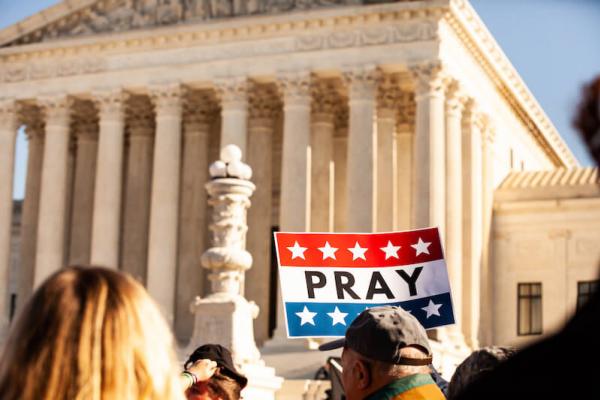Aug 29, 2022
Today, Christians are continuing to pursue their political interests while imagining that God is fighting on their side. In the wake of the Court overturning Roe v. Wade, many conservative Christian leaders celebrated the decision as bringing about God’s kingdom on earth. On the other side of the pew, progressive Christians lamented the decision because of the devastating implications it holds for human rights both now and in the future. This leads me back to the question I asked myself in the wake of the Supreme Court rejecting Trump’s bid to eliminate DACA: Is God in control of the Court?
Read the Full Article

Already a subscriber? Login
